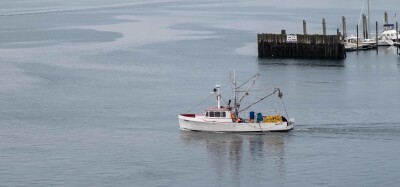Journalists at The Associated Press knew that labor abuses in Thailand's seafood business were an awful but open secret. They wanted to tell the story of an industry rife with human trafficking, abuse, slavery and murder. And they wanted to make the world pay attention.
The best way to do that was to find those captives and follow the fish they caught on its journey to American tables, said Martha Mendoza, a national reporter at the AP and a Pulitzer Prize winner.
"You know you're going after the Holy Grail, right?" one source told them.
And they didn't stop.
Last March, the AP published "Slaves may have caught the fish you bought," by Mendoza, Robin McDowell and Margie Mason. They followed up with the story of hundreds of slaves rescued after their investigation, how fish caught in Thailand ends up in the U.S., how men separated from their families reunited with them again, more rescues, more admissions from international companies and calls for a U.S. boycott of slave-peeled shrimp.






